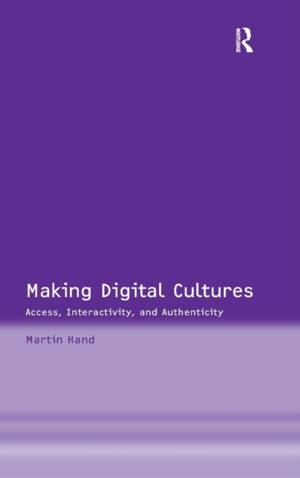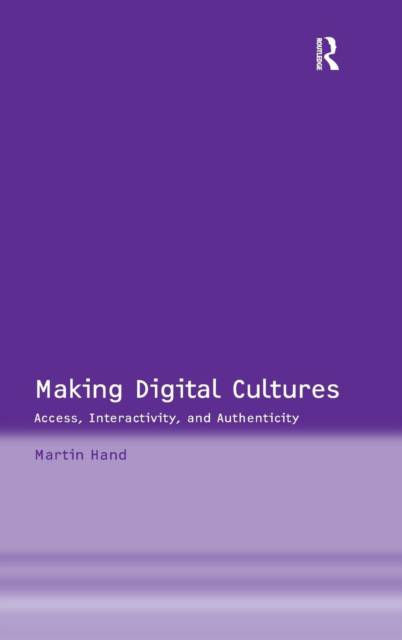
- Afhalen na 1 uur in een winkel met voorraad
- Gratis thuislevering in België vanaf € 30
- Ruim aanbod met 7 miljoen producten
- Afhalen na 1 uur in een winkel met voorraad
- Gratis thuislevering in België vanaf € 30
- Ruim aanbod met 7 miljoen producten
Zoeken
€ 290,45
+ 580 punten
Uitvoering
Omschrijving
Many people in the West or global North now live in a culture of 24/7 instant messaging, iPods and MP3s, streamed content, blogs, ubiquitous digital images and Facebook. But they are also surrounded by even more paper, books, telephone calls and material objects of one kind or another. The juxtaposition and proliferation of older and newer technologies is striking. Making Digital Cultures brings together recent theorizing of the 'digital age' with empirical studies of how institutions embrace these technologies in relation to older established technological objects, processes and practices. It asks how relations between 'analogue' and 'digital' are conceptualized and configured both in theory and inside the public library, the business organization and the archive. With its direct engagement with new media theory, science and technology studies, and cultural sociology, this volume will be of interest to scholars and students in the areas of media and communication and science and technology studies.
Specificaties
Betrokkenen
- Auteur(s):
- Uitgeverij:
Inhoud
- Aantal bladzijden:
- 198
- Taal:
- Engels
Eigenschappen
- Productcode (EAN):
- 9780754648406
- Verschijningsdatum:
- 18/08/2008
- Uitvoering:
- Hardcover
- Formaat:
- Genaaid
- Afmetingen:
- 156 mm x 234 mm
- Gewicht:
- 458 g

Alleen bij Standaard Boekhandel
+ 580 punten op je klantenkaart van Standaard Boekhandel
Beoordelingen
We publiceren alleen reviews die voldoen aan de voorwaarden voor reviews. Bekijk onze voorwaarden voor reviews.











